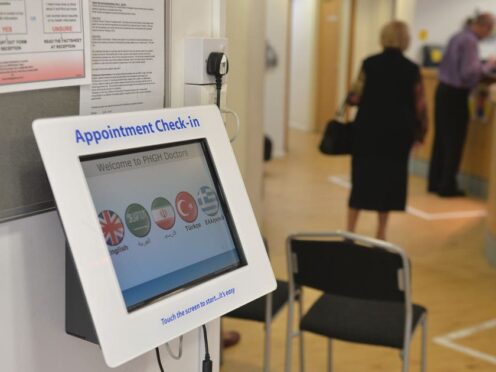To mark University Mental Health Day, RGU’s Jo-Anne Tait discusses why the likes of engineering students can be so reluctant to ask for support, and why a new strategy is needed.
“Why didn’t they reach out?”
In the aftermath of the death of a student, that is the question people ask over and over. The impact of this kind of loss is immeasurable and, in UK, the equivalent of one student every four days dies by suicide.
The thing is, when you are so low and in so much pain, reaching out – for many – is too hard, too shameful, too painful, that it simply doesn’t happen.
In fact, in some student populations it is quite common that people who are experiencing poor mental health never talk about it, and never or very rarely “reach out”.
Often, by the time people are made aware of a student’s situation, it is at or near crisis point, making support far more challenging than if they had been aware earlier.
In my own discipline, engineering, there are very low rates of help-seeking, despite there being clear indications that support is needed.
This is why we have teamed up with students and staff across RGU and beyond to develop a tailored resource for students in engineering and similar subject areas.
Less than 3% would reach out to a GP
The aim is to support students early, to help them develop good mental wellbeing, and to help make their student journey manageable and even enjoyable.
In my own research, less than a quarter of engineering student respondents said they would reach out to staff if they were feeling low.
Less than 3% said they would reach out to a professional – be it a GP, student counselling, or someone else. Other studies report between 32% and 36% of students experiencing significant mental health problems sought help.
This means that people who could be helped are not getting that help.
Lack of support can lead to life-long problems in relationships, employment, mental and physical health, and – in some cases – people taking their own lives.
So, what is going on? Why are students who clearly need support, not asking for that support?
Stress is seen as ‘normal’
One reason is that, in engineering, there is still a perception that excessive student stress is totally normal. There is a tendency for these students to try to handle it all themselves.
It’s not so much that they aren’t aware of the help on offer, it’s just they don’t appear to think it is for them.
Another surprising finding in my own work is that many engineering students said they didn’t want to take up a spot that someone with a “real” problem might need. This suggests many engineering students think their need is somehow less great than others.
It would be easy to think that because engineering-based subjects are heavily populated by young men that it is a gender-related problem. But we see similar patterns in young women in the same subjects.
The recent Thriving Learners study in 2021 reported that nearly three-quarters of students in Scotland have low mental wellbeing, lower than national averages.
University mental health: What is the way forward?
The mantra of University Mental Health Day is: “No student should feel alone with their mental health”. So, what does this mean for the students who are much less likely to ask for help when they need it?
It’s important to accept that not everyone feels able to say how they are feeling, for many different reasons, and that not everyone recognises poor mental health and wellbeing when it starts.
We need to work together to support those who find it hardest to “reach out”, to help them access what they need in a way that works for them.
Our tailored resource is being developed for students less likely to seek help through existing routes. Engineering and similar disciplines teach students problem-solving from day one.
As a result of collaborating with students across Scotland, we are creating new paths to support: ways which they are familiar with from their own disciplines, ways that make sense for them. In essence, helping them solve their mental health and wellbeing problems as they would an engineering problem.
If it works, we plan to share this with others so we can help all students who prefer to deal with things in their own way, and to make “reaching out” easier to do.
Jo-Anne Tait is Robert Gordon University‘s academic strategic lead for engineering.












